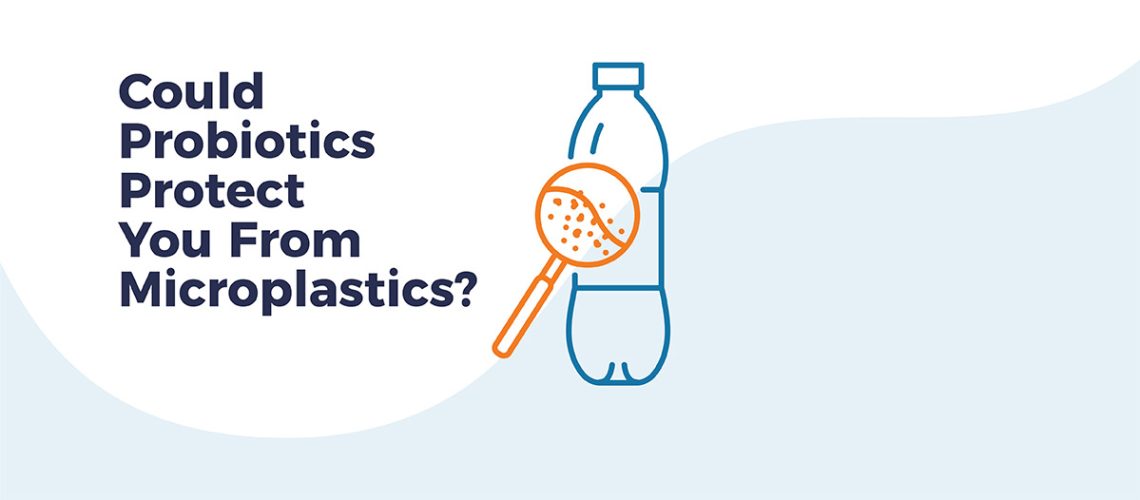Digest This
Click on the topics below to learn how probiotics can improve your digestive health, naturally.

Could Probiotics Protect You From Microplastics?
- @drHoberman
- Diet, Digestive Health, Probiotics
Summary: Harmful microplastics are everywhere and even in our bodies, but there may be a gut-friendly solution in probiotics.
Not a day goes by that we don’t hear something in the news about the growing challenges of plastics polluting our environment.
The problem has become so severe, a growing body of research has concluded that microplastics (pieces of plastic the size of a sesame seed) are even polluting our own bodies, from our lungs to our blood.
Where these microplastics come from is no surprise, given how much we rely on plastic for everything from tires to disposable water bottles. This passive exposure also infects the foods we grow and even the air we breathe.
The tiny microplastic particles can also be easily absorbed by the gut causing all sorts of problems with leaky gut and the healthy balance of bacteria in your gut, the center of your body’s immune system.
Probiotic protection
Fortunately, we may have a very natural way to protect our bodies and collective gut health from harm with help from probiotics, based on a recent review of studies appearing in Frontiers in Nutrition.
Researchers reviewed studies published from 2015-23 that showed how probiotics may ease inflammation and protect our bodies from some toxicity due to microplastic exposure.
Some studies showed how the beneficial bacteria contained in probiotics could absorb and neutralize heavy metals like mercury and cadmium. At the same time, some strains reduced problems by binding to and degrading phthalates (chemicals used to make plastics more durable) and BPA (a chemical used to produce polycarbonate plastics).
In a more recent study, Chinese scientists found that probiotic strains alleviated inflammation just enough to improve the quality of sperm in mice due to exposure to polystyrene microplastics (used to build appliances, electronics and many car parts).
For the foreseeable future, the persistence of microplastics is here to stay and research is just scraping the surface about the benefits of probiotics.
If you’re asking yourself what you could do to protect your body from the harmful effects of microplastics, it’s worth noting that some of the protective strains of beneficial bacteria examined in these studies are featured in EndoMune Advanced Probiotic.
Resources
There Is An Endomune Probiotic For Every Lifestyle
-
EndoMune Metabolic Rescue
$44.95 -
EndoMune Advanced Probiotic
$42.95 -
EndoMune Companion Pack
$112.93









